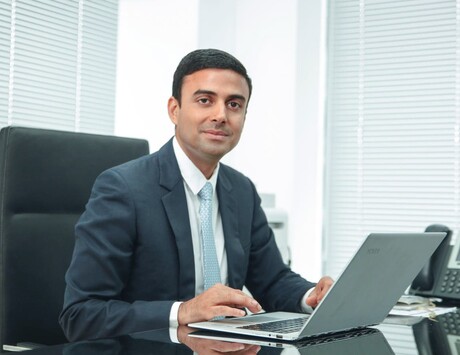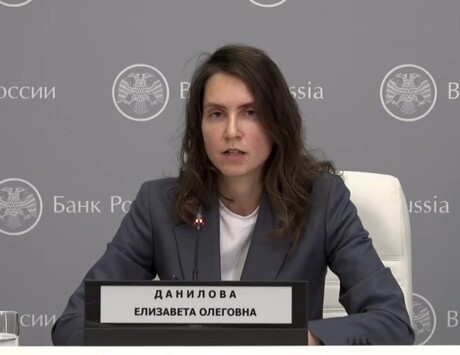Compare and contrast. This week, Richard Desmond can reflect on a record £525m turnover at his Daily Express to Channel 5 Northern & Shell empire while sitting in his vast Thameside office, sipping tea from china branded with his company's logo. Meanwhile, over at Sly Bailey's Trinity Mirror in Canary Wharf, the share price is marooned at 42.25p (less than a single copy of the Daily Mirror), valuing the business at £108m – and less than two times expected future profits. Private media owners are forging ahead, while proprietor-free public companies fight for investor credibility.
Proprietors and other private owners have been on the march since the beginning of the century, buying up and consolidating publicly quoted media companies. Desmond began the process with the purchase of the Express and Star titles from United News & Media in 2000, followed by the Barclays, Tabors and Lebedevs among others. Other proprietors have grown in strength, with Rupert Murdoch adding one of Britain's largest independent producers (Shine) and most likely its biggest commercial broadcaster in BSkyB. Only Lord Black, who ended up in prison, has disappeared from the scene.
Excessive debt
Like the Premier League, British commercial media is gradually being taken over by a group of plutocrats. Once they were rivalled by the private equity barons, led by Guy Hands. However, their use of what turned out to be excessive debt has meant that so many private equity media deals – most notably Hands's purchase of EMI – have gone bad. And the investors continue to shun most quoted media companies, forcing, for example, the break-up of Emap. At the turn of the century, there were nine media groups in the FTSE 100; once BSkyB has been swallowed up there will be four or three, depending on whether ITV can hang on.
Elsewhere this week, after Rupert Murdoch's summer party, James Robinson assesses who is up and who is down at the media magnate's London court, while Patrick Foster profiles a billionaire who plays the new media scene better than anybody – Top Shop mogul Sir Philip Green. Green may not be a media owner (and plans for him to be Simon Cowell's business partner never quite materialised), but he enjoys good personal relationships or has personal contacts with almost everybody who matters in the new milieu. Unfortunately not everybody can obtain his level of access.
The result of this changing landscape is an industry in which a different set of skills are needed to rise to the top, and which is increasingly resistant to conventional pressures. Networking was always important in media – while the need to impress shareholders or City journalists has become less important. So, it is not surprising that one of the biggest winners in the new era is Geordie Greig, a former editor of Tatler, the bible for high society, whose cultivation of the wealthy Russians in London culminated in him being appointed by Alexander Lebedev to edit his newly acquired London Evening Standard. Meanwhile, some owners, most notably the Barclay brothers, never talk publicly – while other chief executives, such as Rebekah Brooks, at News International, don't give interviews.
The economic reason, though the proprietors have become increasingly powerful, is simple; they are able to step in because the public company model has failed. In some parts of conventional media, especially newspapers and to a lesser extent commercial radio (now dominated by two families, the Tabors and Bauers), the economic model has come under severe pressure. Steady profits have become, in some cases, severe losses; last week, to give one example, the Guardian and Observer reported a cash loss of £33m for last year. Over the past four years, the two titles have lost £41m in classified recruitment advertising, as job ads have either moved online or dried up in the recession.
Lorna Tilbian, a veteran media analyst, observes that as a result, investors have fought shy of printed media. "Media has always been cyclical, but in the past investors took the view that with newspapers when the advertising market turned down you could always increase your cover price. So, the sector was seen as very reliable," says Tilbian. "But now there has been such structural change, with the decline of classified advertising, and the winners seem to be new entrants – companies like Rightmove for property advertising – that the City has become increasingly nervous."
Sheer size
In her view the loss of faith is so severe that it has overcome logic: "Daily Mail & General Trust trades on nine times earnings, even when 70% of the business is professional publishing, which is worth at least 12."
Television advertising, too, has been highly volatile, although viewing has remained constant even in the era of the iPad. Channel 5 is in Desmond's hands. ITV survived a Greg Dyke-led private equity bid, its sheer size making it a challenging target for all but the richest to buy. Instead, it is television production, where a cluster of small British companies have been swallowed up by the likes of News Corp and other US media giants, or companies backed by Endemol founder John de Mol. They too were unable to make a public company model work.
Peter Bazalgette, formerly the chief creative officer at Endemol, says: "Part of the problem is that companies like Shed and RDF were quoted on AIM where there was no liquidity in the stock. The other problem is that investors buy shares because they are looking for growth, and the only way to double or treble the size of production companies in the medium term is to find major hits like Big Brother or The X Factor, and it's just hard to find hits like that."
The small scale of so many British media companies is part of the problem. As Tilbian notes, it is significant that the three biggest surviving FTSE 100 media companies are the only ones that are truly globally competitive: Financial Times owner Pearson, which is also the world's biggest educational publisher, Reed Elsevier, the information giant behind the Lancet, and WPP, Sir Martin Sorrell's advertising and marketing services group. All three generate only a small portion of their profits from the UK, while Britain has no consumer media business with international scale; the closest, EMI, is a weak fourth player in the control of a US bank in a declining industry.
There are those, too, who argue that the rise in proprietorship has advantages. Kim Fletcher, a former national newspaper editor and chairman of the National Council for the Training of Journalists, says that the new wave of newspaper owners "have shown they can take risks that might help newspapers make the kind of transition that is needed". He cites Lebedev's decision to take the Standard free, the Barclay family's focus on the commercial aspects of the newspaper and Desmond's decision to run the Express with far less original journalism.
"Look at these examples; the owners have found ways of making the money come in," although not everybody would agree with the decisions taken by each of those owners. What is certain, though, is that proprietorship is on the march.



